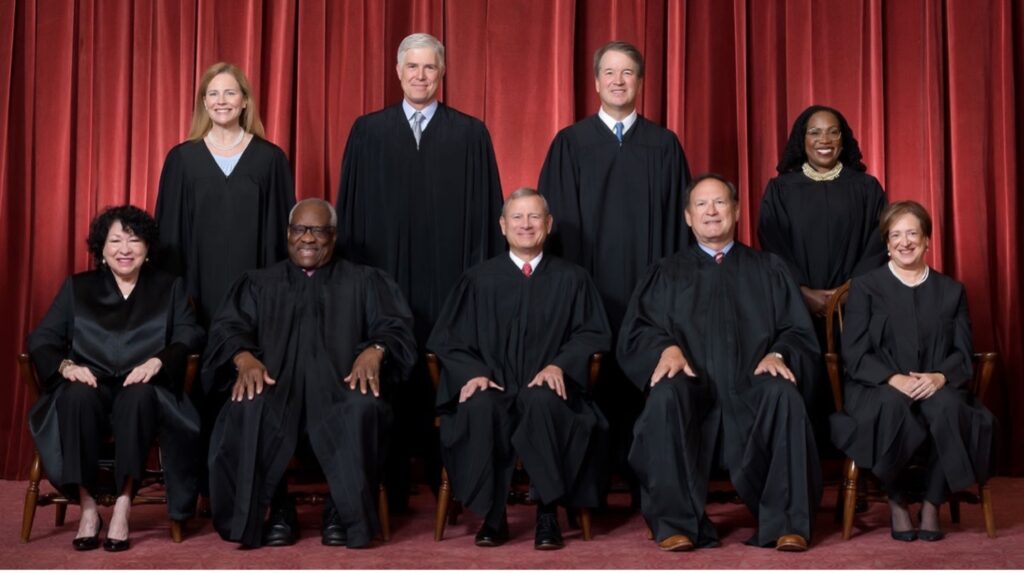Harvey Linder from the Employment & Labor team at Culhane Meadows PLLC provides an update on the United States Supreme Court’s decision in Groff v. DeJoy.
In a case that drew support from a broad array of religious groups, on June 29, 2023, the United States Supreme Court ruled unanimously that employers must show a “substantial” burden to deny workers religious accommodation (Groff v. DeJoy).
The Court sided with Gerald Groff, an evangelical Christian mail carrier for the U.S. Postal Service in Pennsylvania. He had requested not to work on Sundays, his Sabbath. Religious groups that do not often line up on the same side of church-state issues before the Court were of a single voice in this case.
Justice Samuel Alito, writing the opinion for the Court, substantially narrowed an earlier 1977 Court decision that faith groups have for years said is so broad in setting the standard for religious accommodation that it is meaningless.
Title VII of the federal law prohibits an employer from discriminating against workers because of their religion. Referring to Title VII, Justice Alito stated “We think it is enough to say that an employer must show that the burden of granting an accommodation would result in substantial increased costs in relation to the conduct of its particular business.”
The 1977 decision held “that requiring an employer ‘to bear more than a de minimis cost’ to provide a religious accommodation is an undue hard-ship.” With this new ruling, “substantial” effectively replaces “de minimus,” or “minimal,” as the standard.
In addition to affecting Christian sects, the decision will have far-reaching consequences for numerous religious groups such as Orthodox Jews and Muslims. Interestingly, several civil rights groups that normally argue for church-state separations filed amicus briefs in this case supporting mail carrier Groff. Such briefs were filed by the American Hindu Coalition, the American Sikh Coalition, the Anti-Defamation League, the Council on American-Islamic Relations, the American Jewish Committee, and the Orthodox Union.
In his decision, Justice Alito quoted the Orthodox Union’s amicus brief. Because of the 1977 ruling, Alito quoted the brief as saying “Orthodox Jews once again [are] left at the mercy of their employers’ good graces”.
He also quoted the Council on American-Islamic Relations (“CSIR”), which noted employer restrictions on clothing, an area that both Muslims and Orthodox Jews have also cited in the past.
“Muslim women wearing religiously mandated attire ‘have lost employment opportunities’ and have been excluded from ‘critical public institutions like public schools, law enforcement agencies, and youth rehabilitation centers’,” Justice Alito wrote, citing parts of the CSIR amicus brief.
New York University Law Professor, Samuel Estreicher, said the decision will not just only apply to people who do not want to work on Sabbath, but will cover requests for religious accommodation from people of any faith.
“It puts the employers in the position where they have to accommodate not just Sabbath observers but also other kinds of issues that come up,” Estreicher said. “It puts them in a position of having a higher burden of showing that the accommodation is an undue hardship.”
Download PDF of this article HERE.
The foregoing content is for informational purposes only and should not be relied upon as legal advice. Federal, state, and local laws can change rapidly and, therefore, this content may become obsolete or outdated. Please consult with an attorney of your choice to ensure you obtain the most current and accurate counsel about your particular situation.
About Culhane Meadows – Big Law for the New Economy®
The largest woman-owned national full-service business law firm in the U.S., Culhane Meadows fields over 70 partners in eleven major markets across the country. Uniquely structured, the firm’s Disruptive Law® business model gives attorneys greater work-life flexibility while delivering outstanding, partner-level legal services to major corporations and emerging companies across industry sectors more efficiently and cost-effectively than conventional law firms. Clients enjoy exceptional and highly-efficient legal services provided exclusively by partner-level attorneys with significant experience and training from large law firms or in-house legal departments of respected corporations. U.S. News & World Report has named Culhane Meadows among the country’s “Best Law Firms” in its 2014 through 2023 rankings and many of the firm’s partners are regularly recognized in Chambers, Super Lawyers, Best Lawyers and Martindale-Hubbell Peer Reviews.








